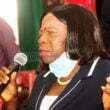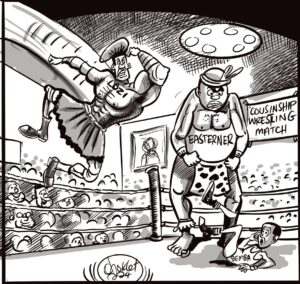The Human Rights Commission (HRC) says the decision by government to redefine a child as any person below the age of 21 years will help reduce cases of early marriages.
In an interview with News Diggers! HRC Chief of Information, Education and Training Mweelwa Muleya, welcomed the move, adding that there was need for stakeholders to engage in public awareness on the adverse effects of early marriages and the wellbeing of a child.
“From the human rights stand point, the measure is really consistent with the protection of the rights of a girl child. You would appreciate that early marriages are both a result as well as a cause of poverty and underdevelopment. Zambia has been grappling with the problem of early marriages which has a direct impact on the education of girls but then also it has a multiple violation of human rights related to health,” Muleya said.
Muleya observed that girl children who engage in early marriages suffer from physical, sexual and mental health complications because of being overdependent on their spouses.
“Girls who get married early suffer from physical, sexual as well as mental health complications because they are not yet fully developed and also because they wouldn’t have had time to develop themselves to a point where they can be fully economically sustainable. Therefore, they remain potentially dependent on their spouses which dependence in some cases results in gross abuse. So we believe that 21 years is a marriageable age and when we try to scan around the continent, you will find that 21 is an average age for someone to get into marriage but in developed countries it could even be higher than that,” he said.
Muleya also said that early marriages was one of the causes of poverty and underdevelopment in the country.
“Early marriages are a symptom of real underdevelopment and poverty and I think that the measure is responding to the challenge Zambia is facing in terms of having high rate of early marriages which is considered in human rights discourse. Early marriage is considered to be one of the harmful traditional practices on the rights of individuals, it falls within these bad practices of wife inheritance, sexual cleansing and others,” said Muleya said.
“Traditionally, you may find that some parents discriminate girls in terms of education in preference for a boy child because for them they believe that the girl will have an alternative of getting married and be looked after by another person and that mentally I think should be changed and people should be looking at girls also as people who can contribute to the wellbeing of their families, their societies and the country at large not that they should be dependent on men. We have to destroy this practice mentality in our society of saying that only boys and men should be sailing in development.”
Recently, Minister of Gender Victoria Kalima said government would revise the marriage Act in order to describe a child as any person under the age of 21.
She said at the moment, the law describes a child as anyone under the age of 16 while any person can marry at the age of 18.
Kalima explained that the Marriage Bill was before the ministry of justice and would soon be presented to Parliament.













2 Responses
I still doubt that are child of 21yers is not ready for marriage.this one is are good ideal but also not good idea.why it’s not are good one because are child get distroyed within the custode of the parent and better for human right to reverse some rules on a girl child then you see early marriages ends. Don’t keep yourself blindly when you know the cause of early marriages today. You are parents and you know your Father’s home hard rules to guide a girl and a boy and just for that to today no matter what you put on a girl child today it will always go opposite way. No early marriege then more or rate of abortions,at 21years of a girl she is the big woman and men of 50 to 80 age that’s what they prefaire to spend there life and also 40 to 60 age mother of today they fleet with boy children of 20 to 30 of age. My question is who are problem between children of today and mothers of today? Then who do you think will stop this unbiblical life. So to handle all this dilemma give more power to parents not children.
Which human rights instrument is this joke of a Human Rights Commission using to back up the chipante pante PF unilateral decisions? The Convention on the Rights of the Child defines a child as any person below the age of 18years. The Convention gives latitude for governments to set a LOWER age of majority not HIGHER! The African Charter on the Rights and Welfare of the Child does not give any latitude at all. It defines a child as a person below the age of 18 years chapwa! So the minimum age for marriage can be put at 21 years but it will be protecting not only children but adults too. Deal with the root causes not the effects.